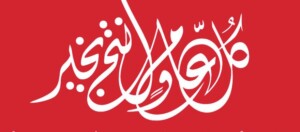Calls for release of the second group of Sudanese artists increase
The Resistance Committees in Karari in Omdurman will increase their actions calling for the release of six members from the FEED Arts group who are still imprisoned. On Thursday, the activists will announce the Charter for the Protection of Art and Artists.
On August 10, 11 FEED Arts members were charged with public disturbance. Five of them, among them film director Hajooj Kuka, were sentenced to two months of imprisonment and a fine of 5,000 SDG on September 17. A week later, six more artists were convicted. On October 1, the members of the first group were released after the Court of Appeal annulled the sentence.
 Dua Tareg, activist and member of Feed Arts group (Social media)
Dua Tareg, activist and member of Feed Arts group (Social media)
The Resistance Committees in Karari in Omdurman will increase their actions calling for the release of six members from the FEED Arts group who are still imprisoned. On Thursday, the activists will announce the Charter for the Protection of Art and Artists.
On August 10, 11 FEED Arts members were charged with public disturbance. Five of them, among them film director Hajooj Kuka, were sentenced to two months of imprisonment and a fine of 5,000 SDG on September 17. A week later, six more artists were convicted. On October 1, the members of the first group were released after the Court of Appeal annulled the sentence.
On Monday, they organised “an artistic revolutionary sit-in” at the Omdurman Youth Centre in front of the Omdurman Women Prison, that will continue for four days.
The sit-in will witness theatrical performances, exhibitions, murals, films, and artistic workshops, and will conclude with the announcement of the Charter for the Protection of Art and Artists.
After her release from Omdurman Women Prison on October 1, Dua Tareg noted in a press statement “complete absence of human rights principles on all levels of power that dealt with the case.
“People are beaten in the police stations, and the prosecution offices failed to file complaints against the regular forces,” the activist artist stated. “The judiciary is not only hostile to the revolution; they are still working with backward laws that only benefit the military and the Islamists.”
Both Kuka and Tareg played an important role in documenting the December revolution and creating theatrical works.
'Old practices'
During her short stay in Omdurman Women Prison, she noticed cases of ethnic and religious discrimination. She further reported that the artists were subjected to injustice and oppression. “This first experience with the revolutionary government has really frustrated us. Therefore, we need to continue our actions to complete the revolution.”
According to the New York-based African Centre for Justice and Peace Studies (ACJPS), “This case shows the weakness in Sudan’s laws and the criminal justice system as vague provisions that give wide discretionary powers for authorities to restrict basic rights and freedoms are still being used by the police.
“This practice was used during the public order regime of the former President, Omar al Bashir where police used vague charges against youth activists, artists, and opposition members to crackdown on exercise of rights to freedom of expression, association and assembly,” the ACJPS stated on September 29 in an Urgent Call to release the artists.
“Courts have also continued to hold politically motivated unfair trials and passed harsh sentences on baseless charges like they did in the al Bashir regime. Relying heavily on the testimonies of the police officers exposes the flaws in the Sudanese Criminal Procedure and the Evidence Act. There is therefore an urgent need for reform within the Sudanese police force, prosecution and the judiciary to ensure human rights are not abused.”
Radio Dabanga’s editorial independence means that we can continue to provide factual updates about political developments to Sudanese and international actors, educate people about how to avoid outbreaks of infectious diseases, and provide a window to the world for those in all corners of Sudan. Support Radio Dabanga for as little as €2.50, the equivalent of a cup of coffee.












 and then
and then